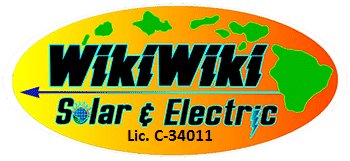Revolutionizing Agriculture with Solar Panels Maui Installers
In recent years, the agriculture industry has been undergoing a remarkable transformation, embracing sustainable practices to minimize environmental impact and ensure long-term food security. Among the myriad of innovative solutions, the professional solar panels Maui installers have emerged as a game-changing partner, enabling farmers to harness the abundant energy of the sun to power their operations. Today, home solar panels in Maui are already adopted by the masses, and revolutionizing agriculture, improving efficiency, reducing costs, and contributing to a greener and more sustainable future.
Let’s discuss it in detail:
1. Energy Independence
Traditional agricultural practices heavily rely on fossil fuels for irrigation, machinery operation, and a variety of other energy needs. However, solar panels offer an alternative energy source that is clean, renewable, and readily available. By installing solar panels on farms, farmers can become energy independent, generating electricity on-site and reducing their dependence on conventional energy sources. This energy self-sufficiency not only cuts operational costs but also shields farmers from volatile energy prices.
2. Enhanced Cost Efficiency
Solar power Maui experts can significantly lower the operational expenses of farming. Once the initial investment is made in installing solar panels, the ongoing costs of harnessing solar energy are minimal. The sun’s energy is free, and with proper maintenance, solar panels can last for decades. A proficient Maui solar battery installer can help use solar power for irrigation pumps, lighting, and other farm activities, farmers can save substantially on electricity bills, freeing up capital for other essential investments.
3. Sustainable Water Management
Water scarcity is a growing concern in agriculture, and efficient water management is vital for sustainable farming. Solar-powered irrigation systems offer a compelling solution. By coupling solar panels with water pumps, farmers can draw water from wells or surface sources and distribute it precisely where needed. These systems can be automated, optimizing water usage and reducing waste. Solar-powered drip irrigation, for instance, ensures targeted and efficient watering, conserving water resources and enhancing crop yield.
4. Climate Resilience
Climate change poses significant challenges to agriculture, including extreme weather events, shifting rainfall patterns, and rising temperatures. Solar panels offer a resilient solution by providing a consistent and reliable energy source. Unlike conventional energy grids, solar power is decentralized, allowing farmers to continue operations even during power outages caused by natural disasters. By integrating solar energy into their infrastructure, farmers can adapt to changing climatic conditions, safeguarding their livelihoods.
5. Carbon Footprint Reduction
Agriculture significantly contributes to greenhouse gas emissions, primarily through fossil fuel consumption. Farmers can drastically reduce their carbon footprint and mitigate climate change by embracing solar panels in Maui. Solar energy is clean and emits no harmful pollutants during production. By transitioning to renewable energy, the agricultural sector can play a pivotal role in combating climate change and achieving sustainability goals.
6. Electrification in Suburban Areas
In many parts of the world, suburban farming communities lack access to reliable electricity. Solar panels offer an opportunity for easy & affordable electricity, enabling farmers to power their homes, schools, and local businesses. Access to electricity improves the quality of life, enhances educational opportunities, and drives economic growth in these communities.
Conclusion:
Solar panels have ushered in a new era for agriculture, propelling the industry toward a sustainable and resilient future. We at WikiWiki Solar & Electric, one of the best solar companies in Hawaii, are helping farmers to achieve energy independence, cut costs, and reduce their environmental impact by harnessing the sun’s power. Solar-powered irrigation, sustainable water management, and rural electrification are just a few of the transformative applications that solar panels Maui bring to the agricultural landscape. As we continue to address the challenges of feeding a growing population and combating climate change, solar-powered agriculture stands as a shining example of innovation and sustainability working hand in hand.
